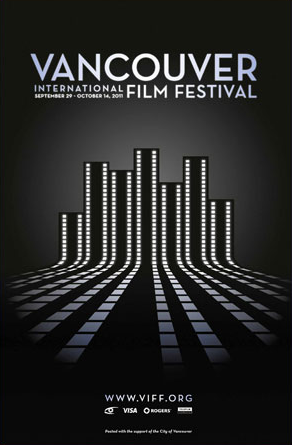By Michael Scoular – Email
Date Posted: October 6, 2011
Print Edition: October 5, 2011
 By the time you read this, the Vancouver International Film Festival (VIFF) will be at least six days into its two-week run. While the belatedness of this “preview” is not ideal, the reality is that no matter how soon anyone begins going to a film festival as diverse as Vancouver, movies will be missed, many of them good.
By the time you read this, the Vancouver International Film Festival (VIFF) will be at least six days into its two-week run. While the belatedness of this “preview” is not ideal, the reality is that no matter how soon anyone begins going to a film festival as diverse as Vancouver, movies will be missed, many of them good.
But what is VIFF? Despite our close proximity to it, it is unlikely too many of us at UFV are scheduling screenings around (and instead of) our regular timetable of lectures and labs. Do film festivals have any relevance besides showing unfamiliar movies in a crowded setting?
Film festivals exist for a variety of reasons, but two in particular stick out. The first is promotion. Independent filmmakers are granted a venue to display their work to potential distributors, where they also can create buzz in advance of wider releases of their films. In this respect VIFF is not one of the highest profile festivals. Most entertainment coverage would have you believe there are no more than around five film festivals in the year. Sundance, for example, has had a noticeable drop in the quality of its programming in recent years, but still gets mainstream attention not because of the history of the festival, but because so many movies are purchased by distributors each year there.
But the second and certainly more important reason for those that don’t have a financial stake in the film industry, is that film festivals exist to show movies selected from around the world to a wider audience, with no need for striking hundreds of prints or a large advertising campaign, two snags when trying to get an independent or foreign film out. While VIFF, despite the fact it fulfills this second criteria, still does not receive much in the way of national media coverage, that does not in any way diminish what the festival has to offer.
For a film festival, one of the most important jobs is for it to position itself in the schedule, make it in some way worth going to for the cinephiles that attend these events, regardless of travel time. VIFF follows closely after, sometimes overlapping with, Austin’s Fantastic Fest (horror/thriller) and the New York Film Festival, largely made up of award winners and the latest auteur offerings from Cannes, Venice and Toronto.
So while Vancouver does have its share of recognizable directors (Almodovar’s The Skin I Live In and the Dardennes’ The Kid with a Bike are the festival’s opening and closing films, respectively), VIFF is unique in its emphasis on Asian cinema, documentaries and Canadian films.
The most important people at a film festival are not the directors that are there to promote their films or the celebrity guest speakers, but the people that arrange for them and their movies to be there: the programmers. One film critic that has given Vancouver its due in past years is David Bordwell, who has given exceptional praise to the festival, noting in particular programmer Tony Rayns, who established Vancouver’s reputation for finding and screening fine Asian movies from Japan, Hong Kong, and South Korea, among others.
In Tony Rayns deep expertise is joined to an unmatched passion and curiosity. His Vancouver programming was crucial in introducing directors like Kitano and Hou to [the] West. He has also made films happen: without the acclaim of Vancouver audiences and the prestige of the Dragons and Tigers prize, how many distributors would have backed later work by young directors over the last 20 years?
The influence and importance of programmers should not be underappreciated; it is because of them that Vancouver’s film festival is worth attending. Award winners like Bullhead, Elena, Once Upon a Time in Anatolia, A Separation, and A Simple Life and the latest offerings from Kore-eda Hirokazu (Still Walking), Yorgos Lanthimos (Dogtooth), Takashi Miike (13 Assassins), Sarah Polley (Away From Her), and Béla Tarr (Werckmeister Harmonies) will all be there, but the great thing about any film festival, and is certainly true of Vancouver, is that you can miss out on all of the above named, and still find a great movie to see. So much of movie-going today is based on advertising and knowing what you’re getting going in, but film festivals represent a yearly offering of great movies where you can genuinely be surprised every day, for two weeks.
VIFF tickets, it is said on their website, do not regularly sell out for 75 per cent of their screenings, and are sold for $10 (matinees) and $12 (evening). While the list of unknown titles can be intimidating, it was Roger Ebert who said in response to a query on how to best watch movies to “see all the movies you can, good and bad.” That’s all there is to it, and festivals like VIFF offer a great opportunity to do exactly that.
Film festivals exist to give both people just starting out exploring cinema and veteran film critics and filmmakers the opportunity to share in the viewing of great movies from around the world. Attending one, there isn’t a guarantee everything will be appealing to any one moviegoer, but what is possible is finding a great movie that wouldn’t have been seen here in Canada in a theatre otherwise. To those that say movies aren’t good anymore, they simply aren’t looking hard enough.
Check back over the next two weeks, when The Cascade will have reviews and other observations from VIFF in these pages.


